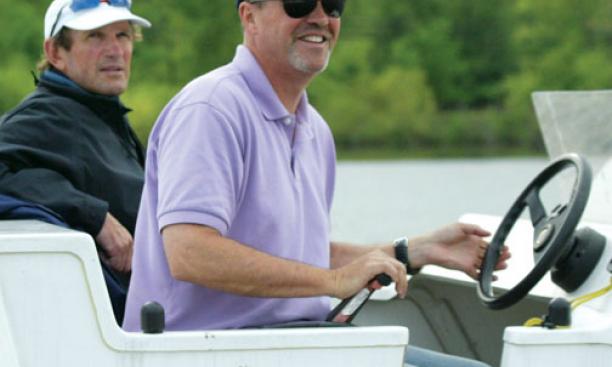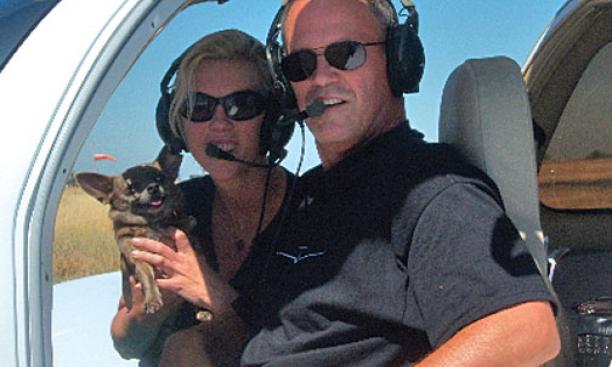


For the better part of 30 years, Curtis Jordan spent his days at Lake Carnegie, coaching Princeton rowers with unprecedented success. But in the first few months since his retirement in July, he has logged more time in the air than on the water.
Jordan, a licensed commercial pilot, is using his newfound free time to help seriously ill patients and their families travel to and from medical appointments through a program called Angel Flights. “I get to do a lot of flying, and it’s immediately rewarding,” Jordan said. Through late September, he had flown about a dozen volunteer missions.
While rowing has been a big part of his life, Jordan said he wants to look back on the sport as “one of the things” that define him. In addition to flying, he has taken a consulting role at an energy company run by a college friend, and he is helping to organize an international rowing event in Heidelberg, Germany.
Jordan arrived at Princeton as a part-time assistant coach in 1979, and since then — save for a brief stint at Yale and a sabbatical year coaching the 2000 U.S. Olympic team — he has been a consistent presence at the boathouse, working with athletes of all abilities, from freshman novices to Olympic champions.
In Jordan’s first head-coaching role, he led the women’s open crew to two Eastern Sprints titles and the program’s first national championship, in 1990. Lori Dauphiny, the current women’s open coach, said that Jordan displayed tremendous knowledge and intuition in the early stages of his career. “In a way, I think he was a natural,” she said.
Jordan went on to even greater success with the men’s heavyweights. Before he joined the team, Princeton never had won the Eastern Sprints. On his watch, the Tigers captured the title five times and also won national championships in 1996 and 1998. His crew had success abroad as well, winning a Henley Royal Regatta title in 2006.
In addition to coaching at Princeton, Jordan held various roles with the U.S. national rowing program, coaching the Olympic team four times between 1988 and 2000.
Greg Hughes ’96, once an assistant coach under Jordan and now his successor, said that Jordan’s career is notable not just for what he accomplished but how he did it. He never was forceful or imposing, and he was universally respected in the broader rowing community. At Princeton, Jordan created “an atmosphere of responsibility and pride,” Hughes said.
Jordan redirects the credit to his rowers. “I’ve had incredible athletes to work with,” he said, “but more importantly I’ve had incredible people to work with. That’s really what we all want.”
When asked if it was hard to leave coaching, Jordan smiled and paused. “I’d like to say yes — and clearly it was quite emotional,” he said. “But it was pretty clear that it was the right thing to do.” His imprint remains prominent: Current head coaches Dauphiny, Hughes, and Marty Crotty ’98 of the men’s lightweights all were assistant coaches under Jordan.
Crotty, who rowed on Jordan’s two national-champion heavyweight crews, expects to miss his mentor most in November and December, when the training schedule slows and coaches have more downtime at the office. Jordan was adept at spinning funny stories and dispensing invaluable wisdom — sometimes simultaneously.
